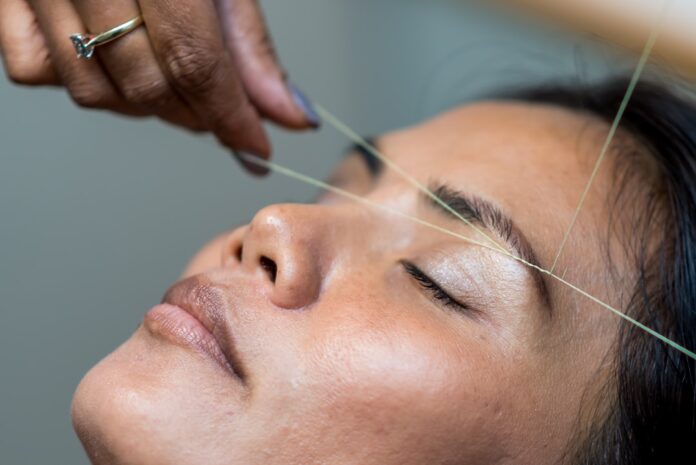Introduction
Hormone balance is essential for overall health and wellness. Hormonal imbalances can have a wide range of effects, from fatigue and weight gain to mood swings and depression. Fortunately, there are many natural ways to balance hormones and improve health and vitality. This blog post will discuss the importance of hormone balance and provide tips for achieving better health and vitality through natural hormone balancing.
What Are Hormones and Why is Balance Important?
Hormones are messengers that help the body communicate with itself and regulate many different functions. They are produced by the endocrine system and released into the bloodstream to carry messages to different organs and tissues. When hormones are out of balance, it can affect many aspects of health, including energy levels, sleep, digestion, mood, and weight.
The Benefits of Balancing Hormones Naturally
Balancing hormones naturally has many benefits. It can help reduce symptoms associated with hormonal imbalances, such as fatigue, depression, anxiety, and insomnia. Natural hormone balancing can also help improve skin health, increase energy levels, and boost overall wellbeing.
Tips for Balancing Hormones Naturally
There are several natural ways to balance hormones and improve health and vitality. Here are some of the best tips for achieving better hormone balance naturally:
1. Get Enough Sleep
Getting enough quality sleep is essential for hormonal balance. Aim for 7–9 hours of restful sleep each night and avoid bright screens and caffeine close to bedtime.
2. Eat a Balanced Diet
A balanced diet is key for healthy hormones. Eat lots of fresh fruits and vegetables, whole grains, and healthy proteins. Avoid processed and sugary foods.
3. Exercise Regularly
Regular exercise can help balance hormones and reduce stress. Aim for at least 30 minutes of moderate exercise per day.
4. Reduce Stress
Chronic stress can disrupt hormone balance. Take time to relax and unwind with yoga, meditation, or a hot bath.
5. Avoid Toxins
Toxins, such as those found in cigarettes and alcohol, can disrupt hormones. Avoiding these substances is key for good hormone balance.
Conclusion
Hormone balance is essential for overall health and wellbeing. Fortunately, there are many natural ways to achieve better hormone balance and improve health and vitality. By following the tips outlined in this blog post, you can naturally balance your hormones and enjoy better health and vitality.1. Eat a Balanced Diet— Eating a balanced diet including lean proteins, healthy fats, and fresh fruits and vegetables is essential for hormone balance. Eating foods that are high in fiber and low in sugar can help regulate hormones and promote a healthy metabolism.
2. Exercise Regularly— Regular exercise helps to promote hormone balance by releasing endorphins, which have a calming effect on the body. Exercise can also help reduce stress and improve sleep, both of which are important for maintaining hormone balance.
3. Reduce Stress— Chronic stress can have a negative impact on hormones, so it is important to find ways to reduce stress and manage it better. Meditation, deep breathing, journaling, and yoga are all great ways to reduce stress and promote hormone balance.
4. Get Enough Sleep— Sleep is essential for hormone balance, as it helps the body to repair and restore itself. Aim for 7-9 hours of sleep each night and create a relaxing bedtime routine to help promote better sleep.
5. Supplement with Herbs— Herbs such as chasteberry, maca, ashwagandha, and holy basil can help to naturally balance hormones. Speak to a healthcare professional to determine which herbs are best for you.
6. Avoid Toxins—Toxins from processed foods, alcohol, and environmental pollutants can disrupt hormones and cause health issues. Avoiding these toxins and eating a clean, unprocessed diet is essential for hormone balance.
7. Take Probiotics— Probiotics can help to improve gut health and reduce inflammation, which can lead to better hormone balance. Taking a daily probiotic supplement is a great way to support hormone health.Eat Healthy Fats — Eating healthy fats such as avocados, nuts, and seeds can help to balance hormones and provide essential fatty acids to the body.
Manage Stress Levels— Stress is a major contributing factor to hormone imbalance. Taking time to relax and manage stress levels can help to keep hormones in balance.
Get Enough Sleep — Adequate sleep is essential for hormone balance. Aim for 7-9 hours of sleep each night to support hormone health.
Eat a Balanced Diet — Eating a balanced diet that includes plenty of fresh fruits and vegetables, lean proteins, and healthy fats can help to balance hormones and provide the body with essential nutrients.Reduce Stress — Stress can have a dramatic effect on hormones, so reducing stress is
Photo by Zhen H on Unsplash
key to hormone balance.
Exercise Regularly — Exercise can help to reduce stress and boost mood, which can help to balance hormones.
Limit Exposure to Toxins — Limiting exposure to toxins such as chemicals and pesticides can help to keep hormones balanced.
Get Enough Vitamin D — Vitamin D is important for hormone balance and can be found in foods like eggs, fish, and fortified milk.Manage Stress — Stress is a major factor in hormone imbalance and can be managed with regular exercise, relaxation techniques, and stress-reduction strategies.
Eat a Balanced Diet — Eating a balanced diet full of fresh fruits and vegetables, lean proteins, and whole grains can help to keep hormones in check.
Get Enough Sleep — Lack of sleep can disrupt hormone balance, so getting enough sleep is essential.
Reduce Caffeine Intake — Caffeine can affect hormone levels, so limiting intake can be beneficial.
Avoid Alcohol — Alcohol can also disrupt hormone balance and should be limited or avoided.
Exercise Regularly — Regular exercise can help to keep hormones in balance and can also reduce stress levels.Eat a Healthy Diet — Eating a balanced diet with plenty of fruits, vegetables, whole grains, and healthy proteins can help to keep hormones in balance. Avoiding processed and refined foods is also important.
Reduce Stress — Stress can disrupt hormone balance, so it’s important to take time for yourself and find ways to manage stress. This can include activities such as yoga, meditation, and deep breathing.
Get Enough Sleep — Getting enough sleep is important for maintaining hormonal balance. Aim for 7-9 hours of quality sleep each night.
Reduce Exposure to Toxins — Chemicals and toxins in the environment can disrupt hormone balance. Avoiding or limiting exposure to these toxins can help to keep hormones in balance.Eat a Balanced Diet — Eating a balanced diet rich in whole, unprocessed foods can help to maintain hormone balance. Foods like fruits, vegetables, and healthy fats are especially beneficial.
Get Enough Sleep — Sleep is important for hormone balance, so aim for 7-9 hours of restful sleep each night.
Reduce Stress — Stress can have a negative effect on hormone levels, so try to find ways to reduce stress in your life. Activities like yoga, meditation, and exercise can be helpful.
Exercise Regularly — Regular exercise can help to reduce stress and promote hormone balance. Aim for at least 30 minutes of exercise five days a week.Reduce Stress — Stress can play a direct role in hormone imbalances. Make sure to take time for yourself and practice relaxation techniques like yoga, meditation, and deep breathing.
Get Enough Sleep — Lack of sleep can cause a disruption in hormones and can lead to further health issues. Aim for 7-9 hours of quality sleep each night.
Eat Healthy Foods — Eating a diet of fresh, whole foods and limiting processed foods can help to support your hormones and foster a healthy balance.
Manage Your Environment — Avoid exposure to toxins, such as pesticides, household cleaners, and air pollution, which can disrupt hormones.Exercise Regularly — Exercise can help reduce stress and promote healthy hormones.
Get Enough Sleep — Aim for seven to eight hours of quality sleep each night.
Reduce Stress — Stress can wreak havoc on hormones, so take steps to manage your stress levels.
Limit Alcohol — Too much alcohol can disrupt hormone balance, so aim to limit your alcohol consumption.
Be Mindful of Hormone-Altering Medications — Certain medications, such as birth control pills, can alter hormone levels. Talk to your doctor about the risks and benefits associated with these medications.Be Aware of Environmental Factors — Certain environmental factors, such as exposure to chemicals or toxins, can affect hormone levels. If you suspect that your environment may be impacting your hormones, talk to your doctor about ways to minimize your exposure.
Manage Stress — Stress can cause a number of hormonal imbalances. Try to reduce stress in your life by engaging in relaxation techniques such as yoga or meditation.
Eat a Balanced Diet — Eating a balanced diet that is rich in fruits, vegetables, lean proteins, healthy fats, and whole grains can help keep hormones in balance. Avoid processed foods and too much sugar, as these can disrupt hormones.
Get Regular Exercise — Exercise can help keep hormones in balance. Aim for at least 30 minutes of moderate exercise each day.
Get Adequate Sleep — Sleep is essential for maintaining hormone balance. Aim for at least 7-8 hours of sleep




